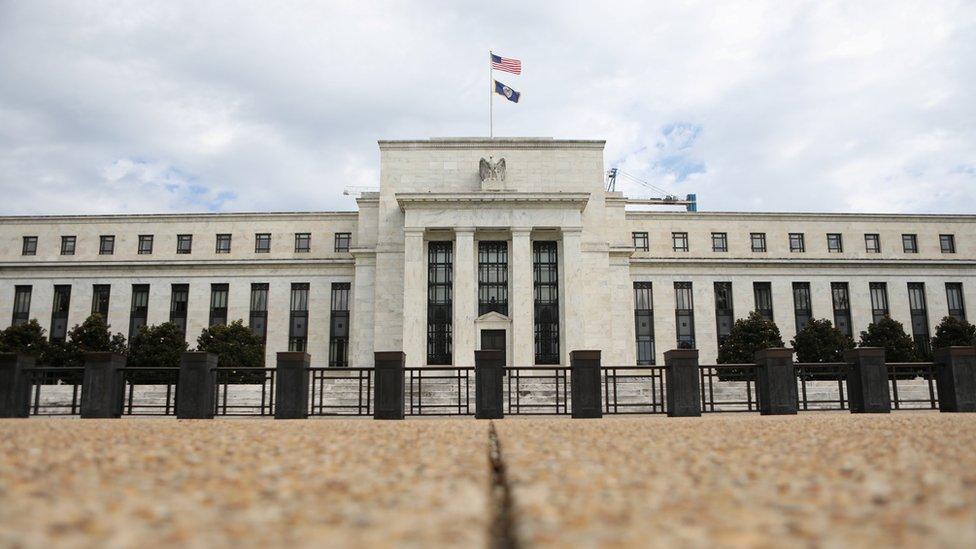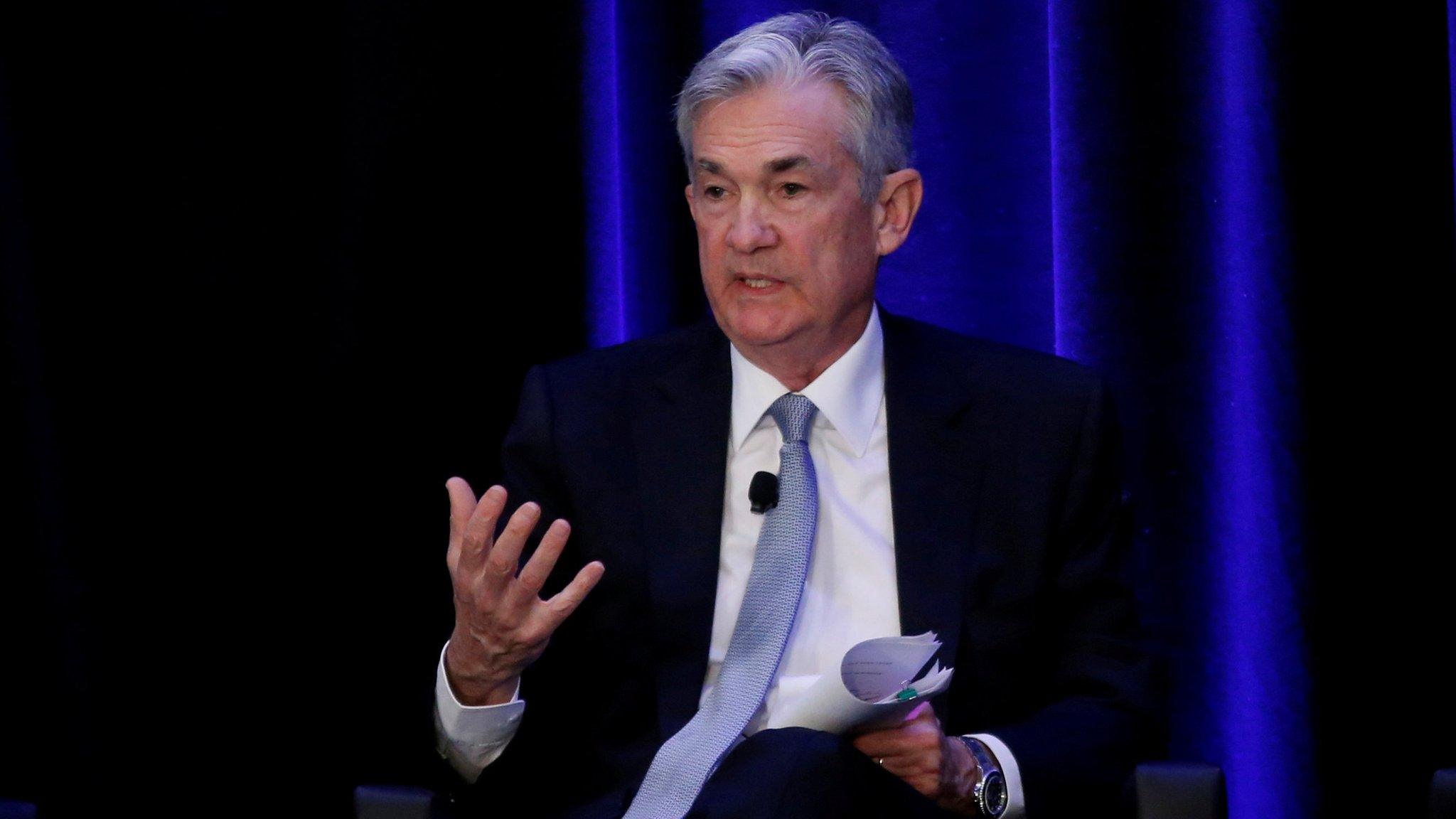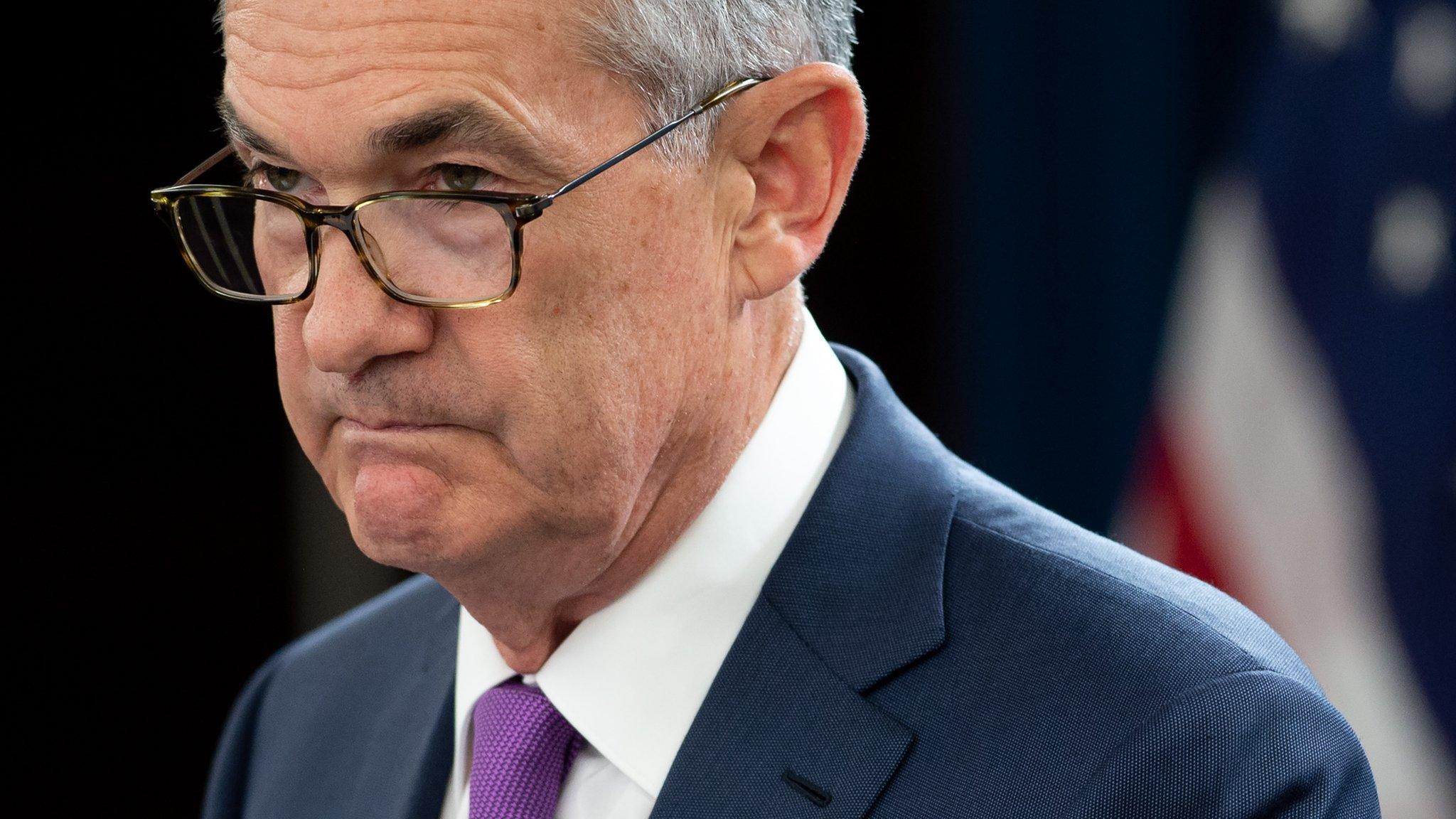Fed puts future rate rises on hold as pledges patience
- Published

The Federal Reserve has been gradually raising interest rates since 2015
The Federal Reserve has indicated it won't raise interest rates anytime soon, marking an abrupt turnaround from earlier statements that suggested it would gradually increase rates.
The US central bank pledged to be "patient" citing muted inflation and recent economic "cross currents".
It made its statement after the Fed's January meeting, where it held interest rates unchanged, as expected.
Markets, which have been worried about higher rates, jumped on the news.
The Dow Jones Industrial Average ended the day more than 1.75% higher, the S&P 500 gained 1.56% and the Nasdaq increased 2.2%.
'Uncertainties'
The Fed has been slowly raising rates since 2015, arguing that a stronger US economy meant the ultra-low rates put in place during the financial crisis were no longer necessary.
But Federal Reserve Chair Jerome "Jay" Powell said changes in recent months warranted a more cautious approach.
"We see these uncertainties," he said at a press conference in Washington, pointing to an economic slowdown in Europe and China, the recent government shutdown in the US and the possibility of a hard Brexit.
"We can afford to wait."

Analysis by Andrew Walker, BBC World Service economics correspondent:

No change in policy from the Fed, but there are some revealing changes to the statement compared with what they said in December.
The suggestion that further increases in interest rates will be consistent with achieving their economic objectives has gone, as has the view that risks to the economic outlook are balanced.
Inflation pressures are now seen as muted and the Fed says it will be patient in making decisions about interest rates.
The changes all point in the same direction: a central bank that is more wary about the economic outlook in terms of growth and is less worried about the risks of significantly higher inflation.
That's not to say the Fed is anywhere near suggesting that a recession is an imminent danger.
It still sees sustained growth as the most likely path for the economy.
But there are what the Fed Chairman Jerome Powell called cross currents, such as the trade tension with China, which suggest there are increased risks of a less favourable outcome.

However, Mr Powell demurred when asked if this marked an end to rate rises.
"The length of this patient period is going to depend entirely on incoming data and its implications for the outlook," he said.
Several analysts said they thought the Fed would raise rates again this year, assuming the US economy remains healthy.
"This reads more like a pause than a strong signal that they believe that they are the end of the hiking cycle," said Fitch Ratings chief economist Brian Coulton.
"Barring a very significant global downturn, we still see further rate increases later this year."
The US central bank also provided more detail about its plans to shrink its portfolio of bonds and mortgage-backed securities.
The Fed said it would retain an "ample" supply of reserves and could adjust the pace of the sell-off if the economy deteriorates.
The statement followed investor demand for greater clarity.
- Published4 January 2019

- Published20 December 2018
